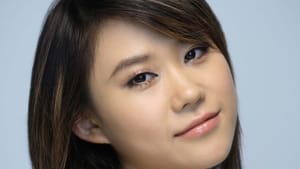Stay in the Loop
BSR publishes on a weekly schedule, with an email newsletter every Wednesday and Thursday morning. There’s no paywall, and subscribing is always free.
She’s young, she’s stylish, and she gets Rachmaninoff
Yuja and Yannick do Rachmaninoff

Rachmaninoff’s Third Piano Concerto is one of the most technically challenging compositions in the piano literature. Its performance fosters anticipation and excitement akin to the Super Bowl. Will the pianist master the demands and come out on top?
When the pianist is Yuja Wang, a 26-year-old Curtis graduate who looks like a fashion model, the stakes are even higher. Thus at this Saturday evening event the atmosphere was electric.
The pinnacle of performing this piece is not only to achieve flawless execution of the most difficult passages but also to transparently reveal its inner structure and timeless beauty. Even Vladimir Horowitz had difficulty achieving this level.
More recently, in 1995, Martha Argerich came very close in a live recording with Riccardo Chailly and the Berlin Radio Symphony Orchestra.
Yuja Wang, aided by the fine accompaniment of Yannick Nézet-Séguin and the Philadelphia Orchestra, reached that summit, transcending technique to reveal the very soul of the music.
Grief and agitation
Rachmaninoff composed the “Rach 3” at his beloved family estate, Ivanovka, for his first tour of the U.S. in 1909. The score was written after he had made a difficult recovery from severe depression brought on by the failure of his first symphony. At the same time, as a member of an aristocratic family, he was aware of Russia’s impending revolution and the need to leave his beloved home.
For both of these reasons, the Third Concerto, despite or because of its daunting technical challenges, is an introspective work that expresses grief, agitation and tension above and beyond the melodic beauty of Rachmaninoff’s Second Concerto. It contains sudden changes of mood, extended passages exploring feelings and sensations, and dynamics that range from quiet reflection to passionate suffering and fulfillment. It’s a true confessional and testament— a self-searching mind reaching out for love and hope.
All this can easily be lost in navigating its many tortuous passages. Ms. Wang, however, succeeded both technically and interpretively, making its meaning transparent. Moreover, she did this through faithful rendering of the score rather than through superimposed emotionality.
Bear hugs and backup
In her efforts, she received invaluable assistance from Yannick Nézet-Séguin, who supported her not only with bear hugs but also with outstanding orchestral backup. His conducting was clear and crisp, highlighting the contributions of each instrumental section.
Most important, he realized that the orchestral score was intended as no mere frill but to give the concerto true symphonic scope. He utilized the ensemble playing between the solos to introduce new themes and facilitate the development of the music.
The result was a meaningful dialogue between the orchestra and Ms. Wang, a rewarding contrast to the more typically modest role of the orchestra vis-à-vis the soloist. There may have been times when the orchestra overshadowed the pianist’s more delicate passages, and it may have led her to become confused at a certain point in the second movement, but these were minor faults that were the consequence of great virtue.
Because of the balance of value between orchestra and soloist, one could fully experience the concerto’s trajectory as it moved from the thematic statements and variations of the first movement, through the quieter moments of the Adagio, to the built-up intensity and passionate conclusion of the Finale. The result was not so much about overcoming a technical obstacle course as the transparent expression of a musical masterpiece.
Odd pairing
Following her victorious performance, and after innumerable (and well deserved) standing ovations, Ms. Wang lightened things up with an encore of the American Songbook standard, “Tea for Two,” where her rapid runs and mastery of the whole keyboard were reminiscent of the great Art Tatum.
The concert rounded off with Richard Strauss’s Serenade for Winds, an early piece displaying Strauss’s mastery of orchestral colors and well executed by the stellar woodwind and French horn sections, with Richard Woodhams’s oboe and Jeffrey Kahner’s flute providing a perfect topping for this taste of Viennese pastry.
This lightness was followed by Strauss’s excruciatingly overwhelming Ein Heldenleben, where the orchestra’s volume could have blown the roof off the Kimmel Center. Rachmaninoff and Strauss don’t belong in the same room together. Ms. Wang well reminded us that Rachmaninoff is a descendant of Mozart, Schumann and Brahms rather than the heroics of Wagner and Strauss.
Yuja Wang is a phenomenon, at her young age already achieving a rare combination of rock star status, virtuosity and musical dedication and discipline. Her Curtis teacher, Gary Graffman, is revered for the latter, and one hopes that Ms. Wang will continue to follow his inspiration and, rather than succumbing to the temptations of stardom, continue to emphasize the Graffman-bred interpretive skills that made her performance of Rachmaninoff’s Third a triumph of pianistic artistry rather than an ESPN sports spectacular.
What, When, Where
Philadelphia Orchestra: Rachmaninoff, Piano Concerto No. 3; Strauss, Serenade for Winds and Ein Heldenleben. Yuja Wang, piano; Yannick Nézet-Séguin, conductor. November 7-9, 2013 at Verizon Hall, Kimmel Center, Broad and Spruce Sts. (215) 893-1999 or www.philorch.org.
Sign up for our newsletter
All of the week's new articles, all in one place. Sign up for the free weekly BSR newsletters, and don't miss a conversation.

 Victor L. Schermer
Victor L. Schermer